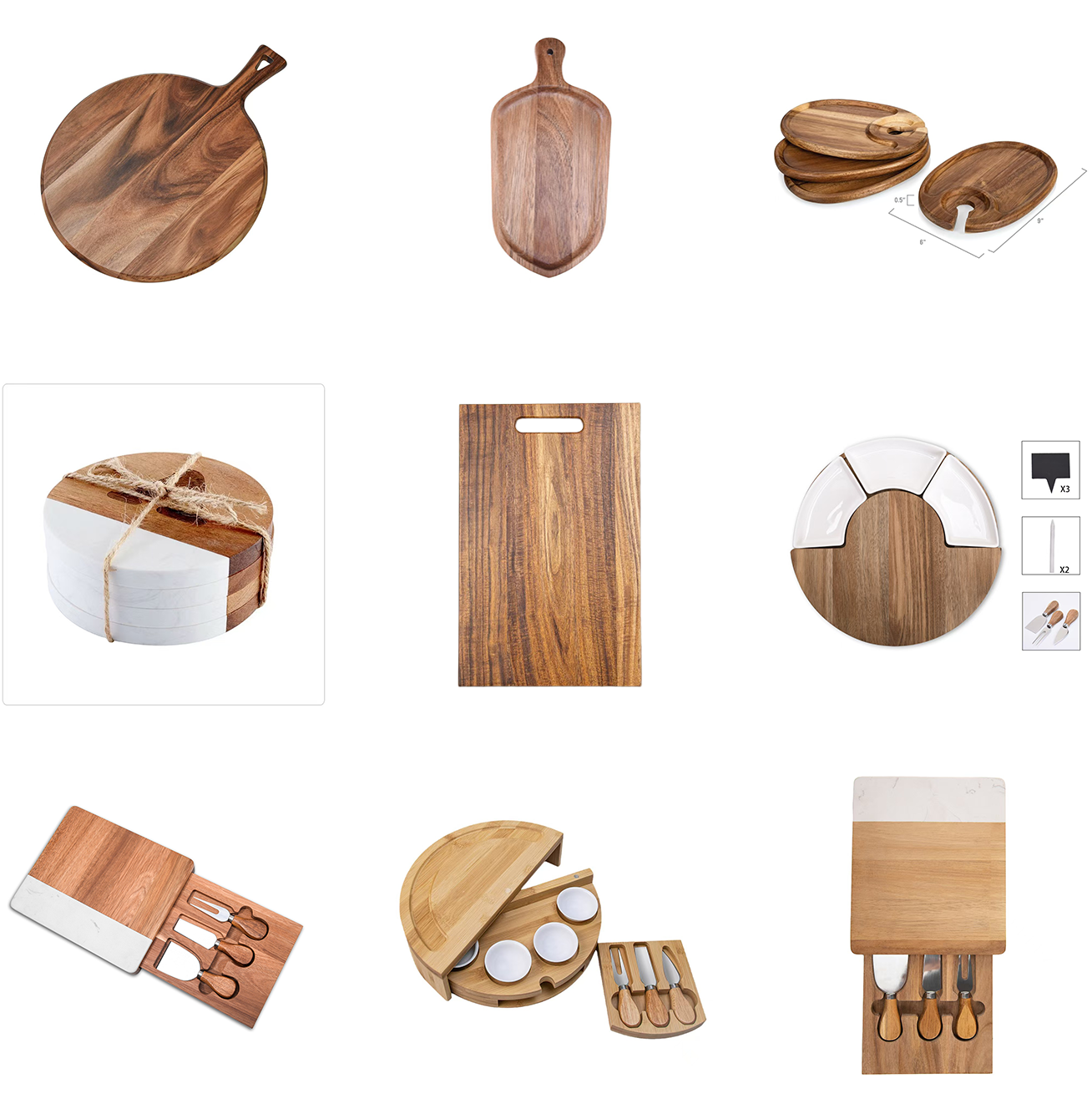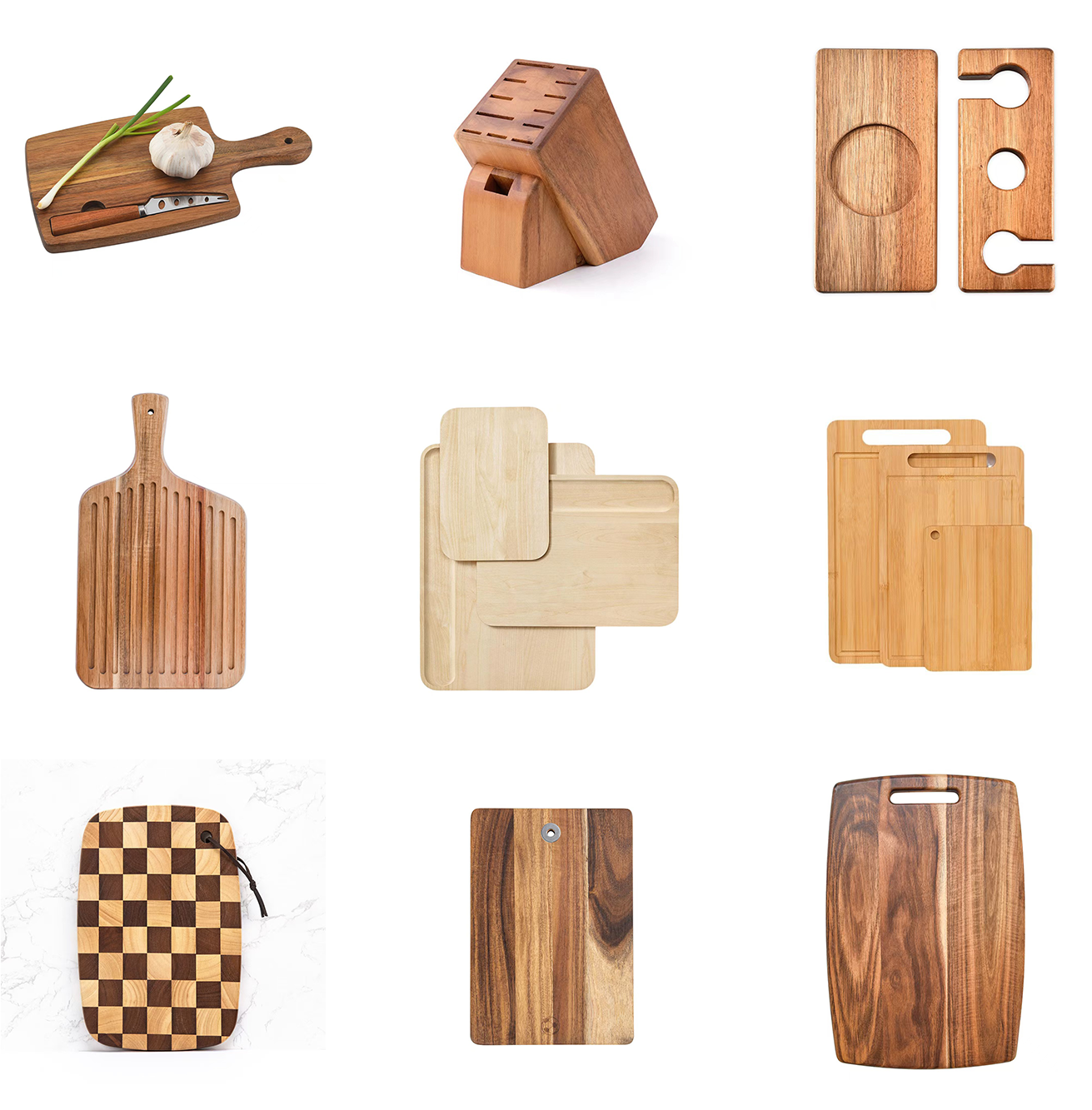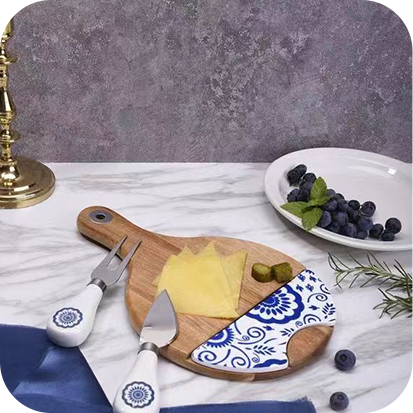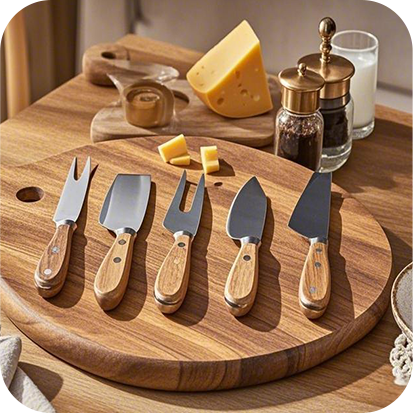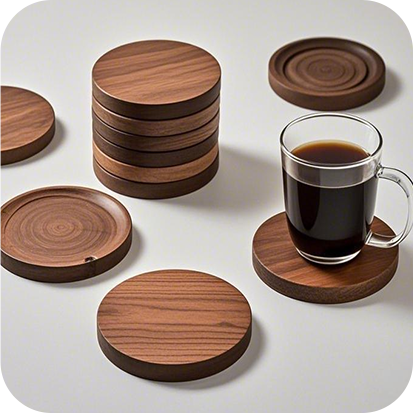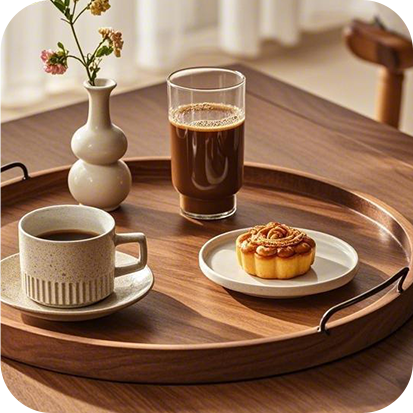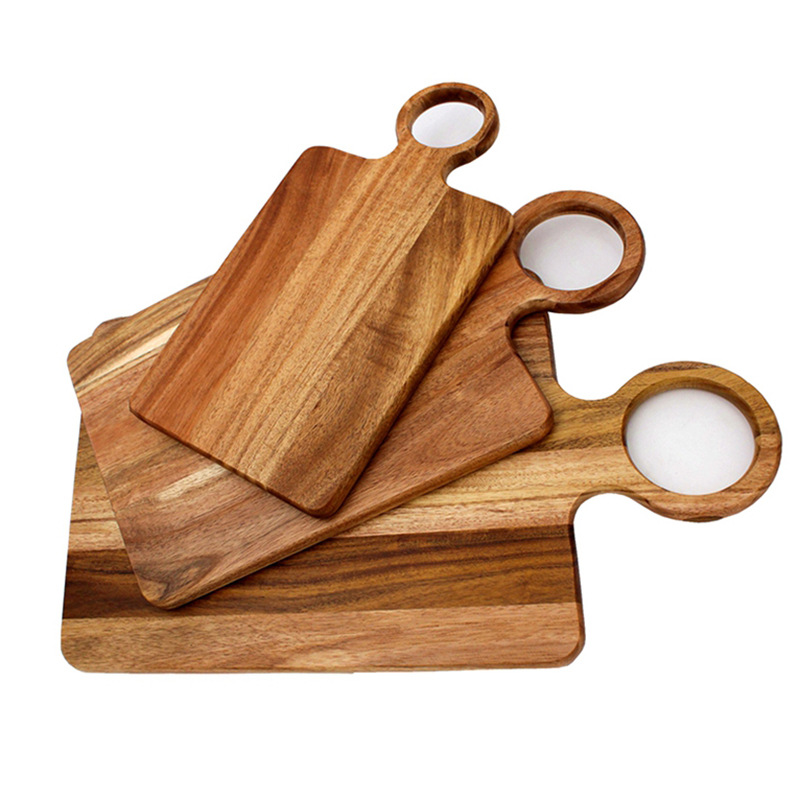
What Wood Tells You: Interpreting Craftsmanship Through Natural Marks
For most consumers, quality is something they touch, see, and feel. In the case of wooden cutting boards, these perceptions are shaped by what appears on the surface—wood grain, color variations, tiny grooves, and natural “imperfections.” But what many overlook is that these marks are more than visual quirks—they’re the fingerprints of craftsmanship.
The Language of Wood
Each line and variation on a wooden board like the Compostable material Engraved Acacia wood Bread cutting board represents the journey of the tree: seasonal growth patterns, soil nutrients, and time. When preserved properly, these marks become symbols of integrity.
For example:
Straight grains suggest structural stability
Knots indicate branch formations and add unique character
Color transitions reflect natural mineral intake, not staining
Educating consumers to interpret these features as proof of material authenticity enhances appreciation and trust in the product.
Visible Craft vs. Machine Precision
When customers choose a Food hygiene standard customizable Acacia wood Cheese platter board, they’re not just buying a kitchen tool—they’re investing in a piece of hand-guided design. Unlike factory-stamped alternatives, the slight asymmetry or grain shift shows human attention and selection.
Tips to help customers recognize value:
Tool marks can show artisan handling
Non-uniform engraving depth confirms manual detail
Edge variations may signal hand-finished sanding
Instead of hiding these under thick coats of varnish, skilled brands reveal and highlight them.
Craft Confidence for Discerning Buyers
Premium buyers want more than a perfect look—they want a product that tells a story. The Sustainable food-safe customizable Acacia wood Cheese board, with its matte, oil-treated finish, lets the wood’s grain texture come through. This builds a “wabi-sabi” aesthetic: beauty in imperfection.
What customers should look for:
Natural oil finishes instead of glossy synthetics
Food-safe sealing that enhances rather than conceals wood texture
Variability in grain alignment, indicating it wasn’t factory-laminated
Encouraging buyers to compare factory wood versus real slab construction empowers informed decision-making.
Informing the Market Through Transparency
By sharing the origins and working process of a board—like the Food processing safe configurable Acacia wood Meat carving board—manufacturers can connect more deeply with customers.
This can include:
Descriptions of the drying, planing, and sanding stages
Visuals showing raw-to-finished board evolution
QR codes linking to short workshop videos
Such transparency fosters product loyalty and supports sustainable pricing.
Let the Wood Speak for Itself
Consumers are ready for more than products—they’re seeking meaning, honesty, and design rooted in real materials. Let your boards reflect their origin with pride.
We, a manufacturer committed to natural beauty and skilled craftsmanship, delivers cutting boards that speak volumes without saying a word.
Contact us at: info@justwoodencuttingboard.com
WhatsApp: +86 183 1248 3616
READ MORE:








